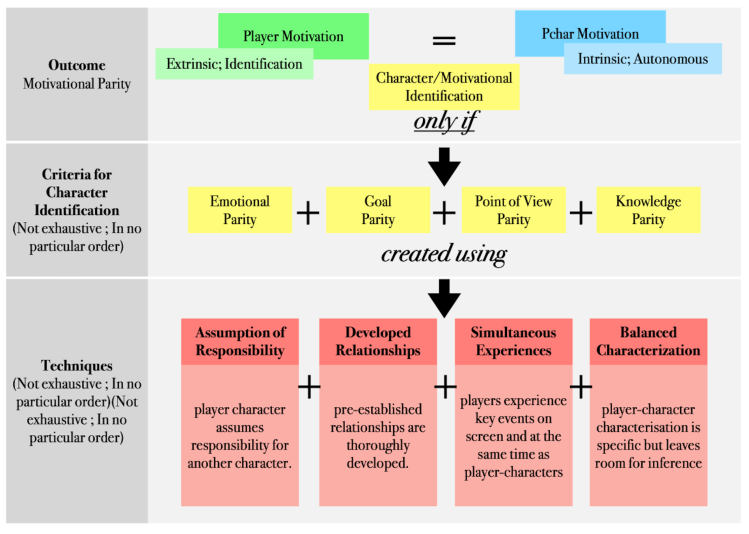
Why do we play games? There are arguably two interpretations of this question: Firstly, in a practical sense, players play to win. Competition and a sense of accomplishment are powerful driving forces that the numeric systems behind games channel perfectly. But there is a second facet to player motivation. We play games to partake in fiction, and good games motivate and call us to action by appealing to our deepest, most fundamental need to understand one another. This paper explores how game narratives benefit from establishing motivational parity between players and player-characters (narrative protagonists) by evaluating the types of player motivation and the concept of character identification. Finally, a framework with concrete methods to guide game designers is proposed.
